- Home
- MaryJanice Davidson
Yours, Mine, and Ours Page 3
Yours, Mine, and Ours Read online
Page 3
“And if you didn’t want that many oatmeal cookies,” the good-looking healer was saying, “why’d you eat them all?”
“I…” Think, idiot! It’s a reasonable question! “… lost a bet?”
“With who?”
“Uh … God?” Would he buy it? Would he think it was funny, or clumsy? Or that I was devout? Or deluded? It was a bibbidi-bobbidi-boo shame that the one man whose notice I’d hoped to avoid was the one Shiro barfed on. For Dr. Gallo was the new doc running the blood bank.
Then I remembered why he was here, why he’d moved here, why I’d fled and left Adrienne in the hot spot. I remembered the only reason he and I were having any conversation, ever, and I nearly threw up. “I can’t … I just can’t apologize enough.”
“It’s fine; put your anxiety in park. I wanted to meet you anyway, and this was quicker.” He dabbed at the last of the vomit. I was kind of impressed he hadn’t stuck a nurse with it. “If messier. Says here…” He glanced at what I assumed was my chart—well, Adrienne’s chart. “You’re one of our consistent platelet donors. The bank almost wouldn’t be here if not for your efforts.”
I could feel my face get warm, which was embarrassing, which made me blush more, which was embarrassing … oh, great, now I was trapped in some kind of remorseful circle in Hell. What he said just wasn’t true, but it was super-duper-cooper sweet to say, and on next-to-no acquaintance it was surprising, too. He just didn’t strike me as the type to waste time saying stuff he didn’t mean. “I just … it’s not even that big—really, it’s not.”
He looked up from my chart, and his dark-dark eyes took on an amused gleam. “And typical of a lot of our reliably generous donors, you’re gonna downplay all over the place.”
“I’m not sure how telling the truth translates to downplay, and I don’t think I was doing anything all over the place, but thanks anyway.” I looked at the clock and tried to looked anxious. It wasn’t hard, since I was anxious. “Jeepers monkey tracks! I didn’t know it was so late. I’ve got to go.”
“And with that, Cinderella vanished.” Was Adrienne using yet another alias?
“Pardon me?”
“Probably just as well,” Dr. Gallo said, standing. He took a courteous step back, and a good thing, too, because if he hadn’t I would have knocked him sprawling into one of the centrifuge machines as I struggled to my feet and galloped past him. “Since you might have the flu. Or a latent oatmeal allergy,” he finished, by now actually hollering as I put space between us.
“I’m so sorry!” I managed, then gave him a lame little wave (lame! so, so lame!) and sprinted out the doors.
Nice, Cadence. Niiiiice. You blended so perfectly, Dr. Gallo will likely never give you another thought. He certainly won’t be curious about all sorts of things he wasn’t curious about an hour ago.
Worst of all: I hadn’t actually gotten around to donating.
So I’d—we’d—have to go back.
Calgon, never mind taking me away. Calgon, please beat me to death. Thanks. You’re a pal.
chapter thirteen
Here’s the truth, and it’s a cold truth: I work for the government, and we are out to get you. We put in overtime to get you. We are paid to get you. We are rewarded with health benefits to get you. We are given a 401k to get you.
Which is why George and I were at the FBI building in downtown Minneapolis instead of headed our blessedly separate ways.
I’d been able to find him quickly enough, and was too rattled to talk about who I’d met (and who Shiro barfed on with my mouth), so I just sort of scuttled back to the car. George—who’d finally been able to convince the ER attending who he was—had been right behind me.
He was so furious with me (which wasn’t fair … I didn’t do a gosh-darn fargin’ thing to him) he didn’t even try to torture me by deliberately parking in a handicap space. George’s theory was, he was a nut job and had the diagnosis, paperwork, therapists, and neck ties to prove it. “Who needs a crip space more than me?” he’d asked reasonably (for him).
“Anyone else,” had been my response. “Gross. Be ashamed.” A huge mistake in retrospect. The number one rule for being George’s partner was to never let on which behavior of his bugged you. And also, never put Splenda in his coffee. He swells up like a balloon. And it isn’t funny. It isn’t. It’s not even one little bit funny when his cheeks bulge and his lips swell and his rants are muffled (“Fffgggnnn huckin’ nitch! Huckin’ hill hoo nitch! Ook ah mah ace!”) and he walks into doorways because his eyes are almost swelled shut, and they have to give him a shot and it takes hours and hours for the swelling to go down and the shots make him throw up.
It’s terrible for him. And it isn’t funny. Right? Right.
chapter fourteen
Wrong. Wrong across the board. But I would never expect Cadence to see it. She hardly sees herself, even in a mirror.
Once, when Adrienne had dosed him with two Splenda packets, George almost fell down a fire escape when we were six stories up. We’d been chasing an arsonist through one of the old buildings in the warehouse district. George’s muffled, rage-induced hysterics could be heard two blocks away.
The arsonist, caught hauling kerosene, was so rattled by the surreal experience of a puffy, engorged George (“Are you … are you the Great Pumpkin?”) he not only forgot to fight, but forgot to run.
Where was I during these shenanigans? In the alley, at the bottom of the fire escape. I was waiting to see if George would lose his grip, and deciding whether or not I would help him if he did.
In the end George saved himself, which was convenient for me as I had enough paperwork. Murder and paperwork: they never, ever end.
chapter fifteen
Now where was I? Right. Don’t let George get to you; keep all artificial sweeteners away from him.
It was kind of nice, him not speaking to me … though the stomping and muttering and glaring were kind of unpleasant. It gave me some peace and quiet in which to mull over Dr. Gallo, recently come to town to help his grieving family. I made a mental note to figure out which victim had been his nephew. Having a family member close by for a formal investigation was wonderful and terrible.
The FBI’s BOFFO (Bureau of False Flag Ops) division looks like any office building, complete with cubicles, printers, administrative staff, restrooms, Berber carpeting, and lowest-bid government-supplied furniture.
The only difference was, BOFFO kept a ton of mental heath professionals on staff, and also haldol, Thorazine, clozapine, and other neuroleptics. Oh, and we had to run everything we did by the federal government.
Today, a Saturday, was typical in that you couldn’t tell it was a Saturday. We staffed all three shifts, business was (sorry to say) good, and for some of us the cubicles were the closest thing we had to a home. And our co-workers the closest thing to a family.
That’s not to say I was happy to be here. Nuh-uh. I had to see my boss, Agent Michaela Taro, and it wasn’t going to be pleasant. BOFFO policy: If our mentally disturbed shenanigans got us arrested, we had to be debriefed as soon as possible.
She was waiting for us by our desks, not a good sign. Michaela was not one to loiter, but she had someone with her, a woman I’d never seen before. And as we got closer, I realized it was the new girl. Uh, woman. Agent. The new BOFFO agent. She had a pleasant-looking face with a wide forehead, a surgically trimmed nose, and deep brown skin with reddish highlights. Her hair was clipped Jarhead short, but in a weird way it made her even prettier. Emphasized her bone structure or something.
“Agent Jones. Agent Pinkman.”
“Boss, you would not believe—” George began, his voice climbing into a whine.
“Yes, yes, I’m sure it was horrid.”
“It was!”
“And I’m certain you’ve never done any one thing in your life to deserve a trip to the ER via the police.”
“But—” George’s whine was spiraling up and up; soon only dogs would hear him.
�
��Quiet, Pinkman, I don’t have time. Neither do you. This is Agent Emma Jan Thyme; she starts today … the Washington office has kindly lent her to us. You two bring her up to speed—”
“Did you really say that? ‘Bring her up to speed’?” George wondered aloud. “Nobody says that in real life. Next you’ll be talking about birds in bushes and feeling the burn and collaring the perp.”
Michaela jabbed a finger in George’s direction. It was a dangerous finger, yet beautifully manicured with lavender polish. Our boss was striking. Not she-looks-good-for-her-age striking. Really striking, with chin-length silver hair, green eyes, a neat, trim figure, and a squarish face. She was almost always in a tailored suit (she had family money; the government sure wasn’t paying for them) and spotless white tennis shoes. Today she was wearing a green Ann Taylor suit a couple shades lighter than her eyes, and a sidearm full of tranks.
I think her brusque manner hid deep affection for us.
I think.
She was still pointing at George. “Quiet, Pinkman, or I’ll accidentally arrange to have you shot. So: get Agent Thyme caught up with the murders. Then solve them. Then stop getting arrested and making me talk to the feds about not having you put down like rabid dogs.”
“That’s a big to-do list,” I said, and Agent Thyme grinned.
“Uh.” George cleared his throat. “Which murders?”
“Which do you think?” Michaela said irritably. “The June Boy Jobs.”
“Catchy,” Agent Thyme volunteered.
“Yes, it’s a rule,” I said. “All serial killers must be given a weird yet distinctive yet lame moniker. The Green River Killer. The I-5 Killer. The Cabbage Patch Doll Killer. The Smells Like Bacon Killer. The media loves it.”
“Go fight crime, and don’t do something silly like get killed in the line of duty,” Michaela commanded. “I have far too much paperwork as it is. Cadence, do not for a minute think you and I are not going to have a chat about dog shows and holding-cell fights and shaved poodles.”
“Wow,” Agent Thyme said, her big dark eyes widening. “Your Saturdays sound fascinating.”
“They’re not,” George and I said in unison, then glared at each other like a couple of kicked cats.
“I just can’t do it with you now,” Michaela finished, “being too busy begging Congress for more money, and dreaming about the day I can burn this building down.”
“That’s okay.” It sure was. Yes, indeed! Except for the part where Michaela needed kerosene, or explosives. “Maybe you could just send me a memo.”
“Maybe you shouldn’t hold your breath.” She stalked off. I stared at the trank gun. Sometimes I thought Michaela was more like a zookeeper than an FBI division head. She once told Shiro that was nonsense, that zookeepers were far more humane than she could ever be. Weirdly, that didn’t comfort any of us.
“What’s up, new girl?” George asked.
“Oh, all sorts of things.” I just noticed she had a Southern accent, so it came out “all sortsa thangs.”
She stuck out her hand. George and I both shook it, me first because I was just naturally better at social cues than he was.
“Wow, you sound just like Paula Deen,” he said. “Will you make me some mashed potatoes?”
“Everyone from the South sounds like Paula Deen to everyone in Minnesota.” She glanced at his ID and then got an odd look on her face … sort of wary puzzlement with a dash of interest and respect.
“George Pinkman? The same Pinkman who tracked down the skinhead gang who pulled a train on that little—”
“No,” he said abruptly. “Different Pinkman.”
It wasn’t.
We just sort of stood there and looked at him while he frantically searched for his coffee so he could leave.
He abruptly gave up the search and almost shouted, “I need coffee and drugs. And drugs! You bring the new girl up to speed. Argh. Now I’m saying it. ‘Up to speed.’ Jesus.” Then he scampered toward the break room.
I hadn’t noticed, but Karen, one of the admin staff, had stopped by my desk to drop off more forensic analysis for the JBJ case. She must have overheard, because just as George fled she asked, “Does ‘pulling a train’ mean what I’m pretty sure it means?”
“If you mean ‘gang rape,’ then yeah,” I said.
“That’s what I thought.” Karen looked at Agent Thyme. “It’s the same Pinkman. He saved three of the girls and killed all the bad guys. Um. Accidentally.”
“Accidentally?” Emma Jan asked, arching dark brows.
“They fell.”
“On what?”
“Three of George’s hollow points,” Karen admitted. “In a way that no one could possibly see coming. Because they all died of accidental deaths. Uh, death by misadventure. Tell her, Cadence.”
I shook my head. Like George Washington, I was terrible at telling lies. I usually left it to the pros. “You’ll have to ask the same Pinkman, Agent Thyme.”
“You suck at office gossip,” Karen told me, resplendent in her gray flannel penguin jammies. With feet! She looked like a giant baby with a corona of reddish-brown curls. A giant baby who could type 120 wpm. Then she turned to Agent Thyme. “It’s funny. Just when I think I can’t stand him and he should be gassed, he does something that makes me almost not hate him.”
“It’s an exclusive club,” I agreed, “and you and I are both in it.” As she left, I added, “He’s really okay, Agent Thyme. He had a rough morning. It’s not his fault.” It was mine, but there was only so much info I was willing to volunteer.
“Don’t worry about it; his rep precedes him. So does yours.” That was never good news. “And quit with the ‘Agent Thyme’ stuff already. I’m Emma Jan and I collect unusual deaths.”
I blinked. “Yeah, uh, nice to meet you. I’m Cadence Jones and I’m a little freaked out by what you just said.”
She laughed. She had a wonderful laugh, deep and rich, like good coffee. I think. I didn’t like good coffee. Specifically, I didn’t like hot coffee … but I would admit to a hard-core Frappuccino addiction.
Anyway. I didn’t like hot coffee. It made me
(geese daddy don’t throw that don’t throw that at them)
nervous, people could
(too hot burns it burns)
get hurt.
“Sounds like I’m gonna fit right in around here.”
Whenever anyone said that, it usually meant there was no way they were going to fit in. But I hung onto my smile. “That’s great.” She seemed friendly and genuine. And that accent! I could listen all day, if she said things that weren’t about unusual deaths. “Welcome to BOFFO.”
“Thanks. Want to hear my top three most unusual deaths?”
Gross. “No thank you.”
“Aw, come on,” she wheedled. “It’s wild, I promise.”
“I’m sure it is. Why would you collect them otherwise?” Gross. “No thank you.”
“Just one unusual death?”
“Not even the beginning part of one.” Yeesh. It was a stupid question, given BOFFO’s employment roster, but was she nuts? Who … who’d want to…? Gross.
“Are you suuuuure?”
“Gross. I mean, yes, I’m sure. Thanks anyway, though,” I added. “It was, um, nice of you to want to share.” Gross.
“Fine, fine.” She sighed. “Could you show me around? And I’d love to hit a vending machine. My greatest fear is waking up with a skinny butt like yours. My butt needs constant tending with potato chips and pie. And I’ve got to pee. I don’t think you’d like it if I went right here.”
“Nobody would, I’m pretty sure.” I had no comment on her butt. I had no comment on anything. She was sort of a weirdo. Not that I enjoy judging or anything. “Okay. Here comes the government-sanctioned tour. Keep your arms and legs inside the vehicle at all times. First stop, the ladies’ room.”
She trotted after me (she was really short) and as little as I wanted to talk to her, I was glad I had to give the tour. I was
in no rush to pick up the June Boy Jobs folder.
Agent Thyme wasn’t just a random transfer. She was supposed to help us catch the JBJ killer. And I prayed she’d be able to tip the balance in our favor, because so far we had diddly-iddly. Just a score of dead teenage boys. And paperwork.
chapter sixteen
I saw the JBJ’s handiwork for the first time on the Fourth of July. And I think if I’d seen his handiwork on, say, Labor Day, or on an ordinary Tuesday, it wouldn’t have bothered me so much. It wouldn’t have been so hard to get those poor dead kids out of my head.
But July 4th? It wasn’t just an excuse to get off work and blow stuff up … it was a family holiday. Whoever heard of a Fourth of July barbecue … where everyone was a stranger?
No, the Fourth was about grilling hot dogs and teasing your dad because it took him forever to get the grill lit. It was about setting a picnic table with red, white, and blue paper plates, and loading the plates with Grandma’s homemade potato salad. It was lugging blankets and coolers over to the town golf course, setting up your family and friend’s little stretch of blanket territory and waiting, cans of pop and beer for everyone, for it to get dark enough for the fireworks. And afterward everyone went home dirty and full and tired, but everybody slept well because they were full of hot dogs and tired, and mosquito-bit to beat the band.
(I, um, sort of researched that whole bit. But I didn’t just read books; I interviewed people. All that, the stuff I just listed, that was all Fourth of July 101. But I think it’s fair to point out that, not having a family to grow up with, I probably romanticized family holidays. Which makes me a romantic, but not necessarily incorrect.)
On a day I should have been wolfing down hot dogs and worrying Adrienne would pop up when the fireworks came out—not to mention making out with my new boyfriend and trying my hand at making potato salad—I was instead standing over the dead body of a fourteen-year-old boy. And my pastry-chef boyfriend had alternately sulked and worried when I wouldn’t bring him.

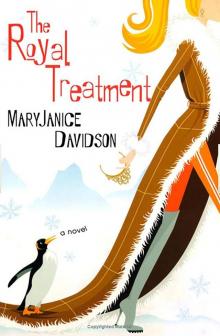 The Royal Treatment
The Royal Treatment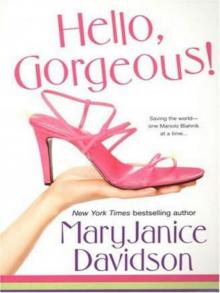 Hello, Gorgeous!
Hello, Gorgeous!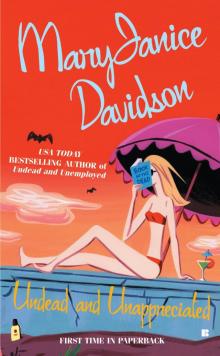 Undead and Unwed
Undead and Unwed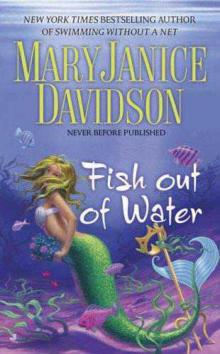 Fish Out of Water
Fish Out of Water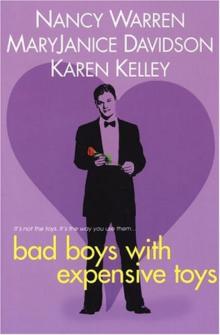 The World Is Too Darned Big
The World Is Too Darned Big Loves Prisoner
Loves Prisoner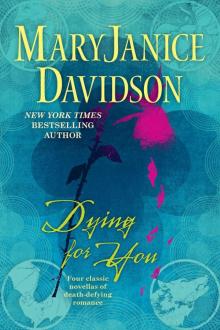 Dying for You
Dying for You Love Lies
Love Lies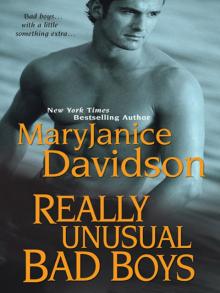 Really Unusual Bad Boys
Really Unusual Bad Boys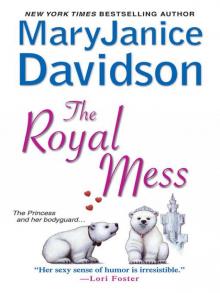 The Royal Mess
The Royal Mess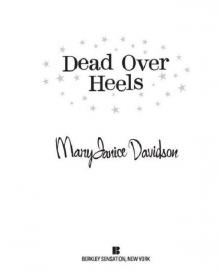 Dead Over Heels
Dead Over Heels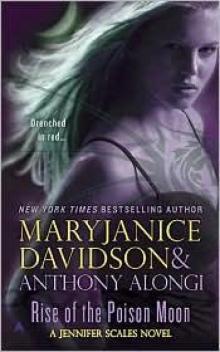 Rise of the Poison Moon
Rise of the Poison Moon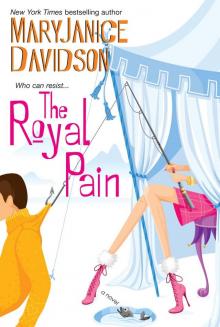 The Royal Pain
The Royal Pain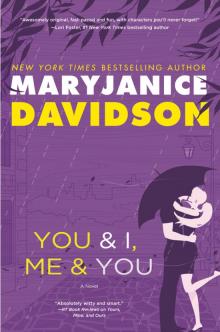 You and I, Me and You
You and I, Me and You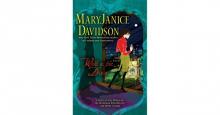 Jareds Wolf
Jareds Wolf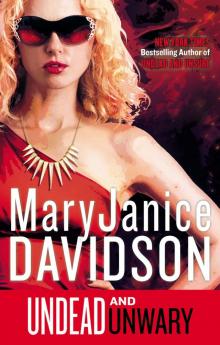 Undead and Unwary
Undead and Unwary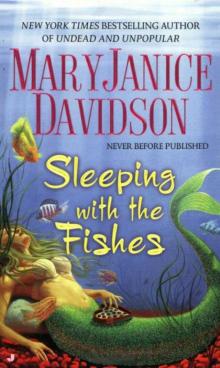 Sleeping With the Fishes
Sleeping With the Fishes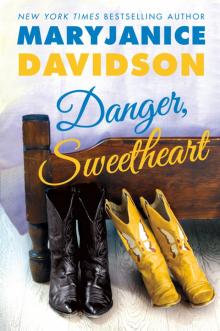 Danger, Sweetheart
Danger, Sweetheart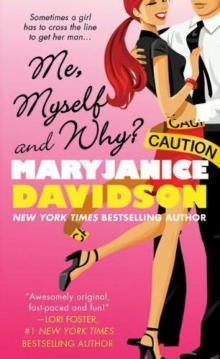 Me, Myself and Why?
Me, Myself and Why?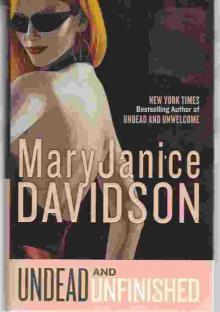 Undead and Unfinished
Undead and Unfinished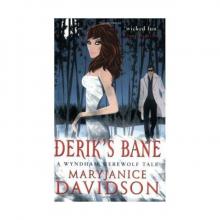 Deriks Bane
Deriks Bane Thief of Hearts
Thief of Hearts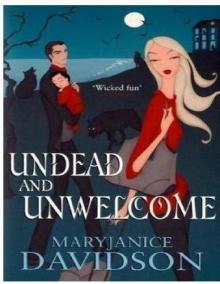 Undead and Unwelcome
Undead and Unwelcome Deja Who
Deja Who Deja New
Deja New Under Cover
Under Cover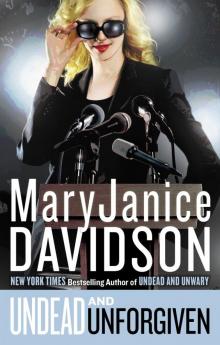 Undead and Unforgiven
Undead and Unforgiven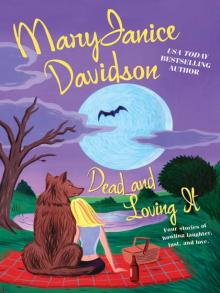 Dead and Loving It
Dead and Loving It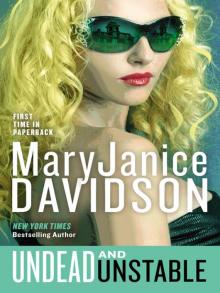 Undead and Unstable
Undead and Unstable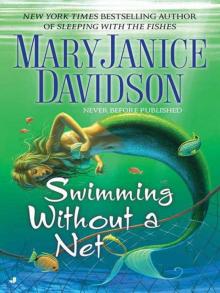 Swimming Without a Net
Swimming Without a Net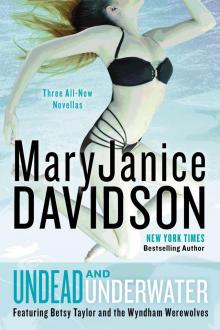 Undead and Underwater
Undead and Underwater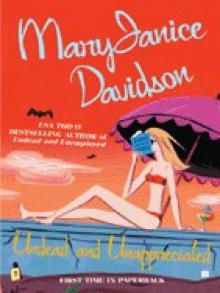 Undead and Unappreciated
Undead and Unappreciated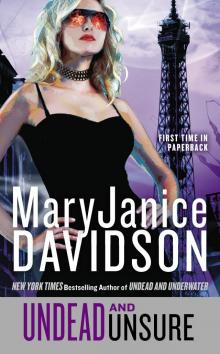 Undead and Unsure
Undead and Unsure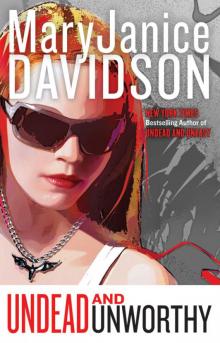 Undead and Unworthy
Undead and Unworthy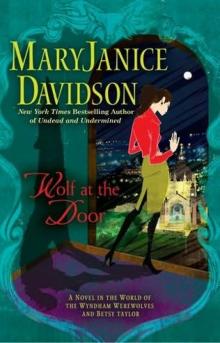 Wolf at the Door
Wolf at the Door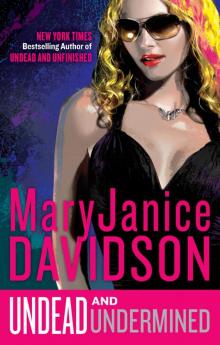 Undead and Undermined
Undead and Undermined Undead and Unpopular
Undead and Unpopular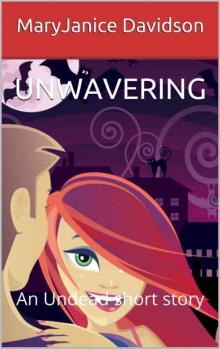 Unwavering
Unwavering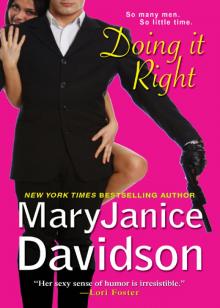 Doing It Right
Doing It Right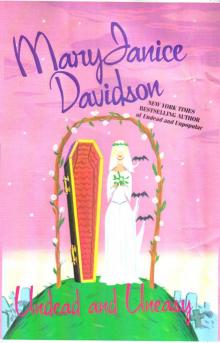 Undead and Uneasy
Undead and Uneasy Drop Dead, Gorgeous!
Drop Dead, Gorgeous!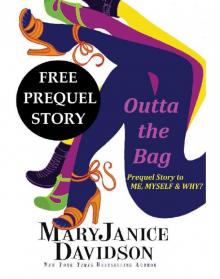 Outta the Bag
Outta the Bag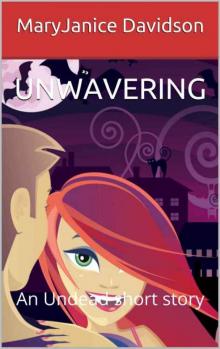 UNWAVERING: An Undead short story (Undead shorts Book 1)
UNWAVERING: An Undead short story (Undead shorts Book 1) Jennifer Scales and the Ancient Furnace
Jennifer Scales and the Ancient Furnace Yours, Mine, and Ours
Yours, Mine, and Ours Under Cover (v1.1)
Under Cover (v1.1)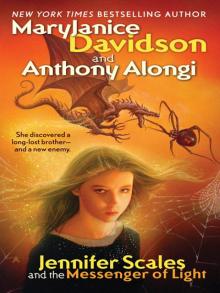 Jennifer Scales and the Messenger of Light
Jennifer Scales and the Messenger of Light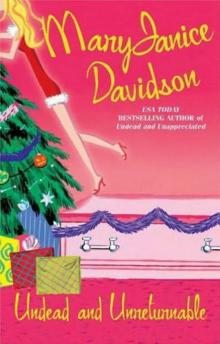 Betsy 4 - Undead and Unreturnable
Betsy 4 - Undead and Unreturnable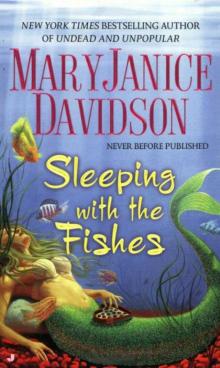 Sleeping with the Fishes (v1.1)
Sleeping with the Fishes (v1.1) betsy short 02 - ureliable
betsy short 02 - ureliable Evangelina
Evangelina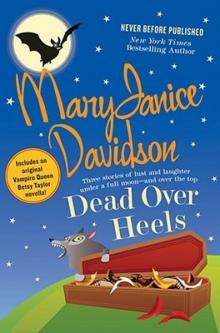 Dead Over Heels (wyndham werewolf)
Dead Over Heels (wyndham werewolf)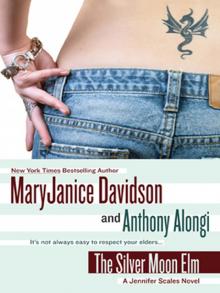 The Silver Moon Elm
The Silver Moon Elm Faeries Gone Wild
Faeries Gone Wild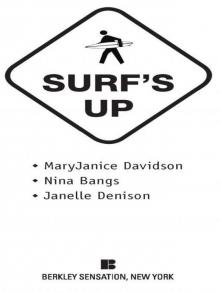 Surf's Up
Surf's Up Seraph of Sorrow
Seraph of Sorrow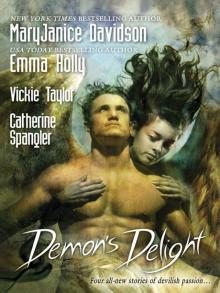 Demon's Delight
Demon's Delight